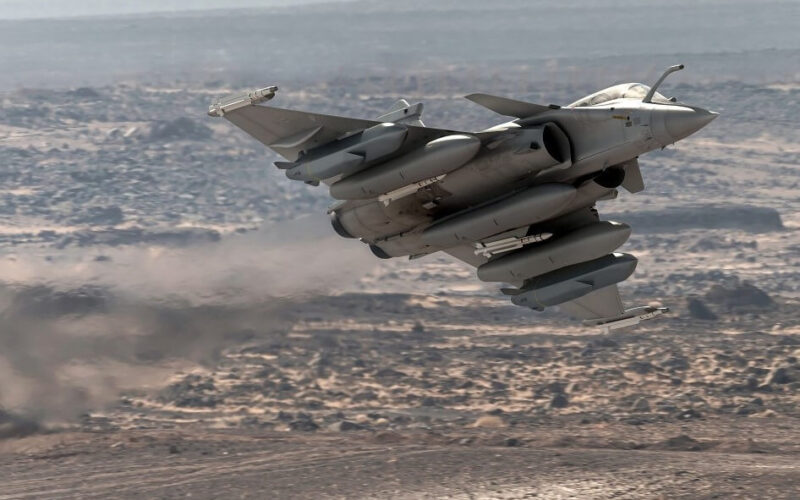Dassault Aviation recorded an “exceptional” order intake of €16.3 billion ($16.6 billion) in the first half of 2022, thanks to the recent success of the Rafale fighter jet. However, the French manufacturer reported difficulties in its supply chain, posing problems for production ramp-ups.
The main driver of the improved first-half order performance, which compares to an intake of just €3.9 billion in the first half of 2021, was the Rafale fighter jet, with a historical order of 80 aircraft by the United Arab Emirates. Greece also ordered an additional 6 fighters in March 2022, bringing its fleet to a total of 18 Rafales.
Dassault’s business jets were also successful, with 41 Falcons ordered in the first six months of 2022, compared to 51 for the whole year of 2021. “This figure is in reality slightly higher because we canceled the aircraft ordered from Russia as we would not be able to deliver them,” Éric Trappier, CEO of Dassault Aviation, explained in a press conference.
The French manufacturer said the two recent crises affecting the aviation industry, namely the COVID-19 pandemic and the war in Ukraine, have impacted the company, its suppliers, and customers.
“The impact of these two major crises generates uncertainties on the supply of energy, electronic components and materials, leading to an increase in inflation due to these real or potential shortages, and a weakening of the supply chain, which has become a major risk, amplified by the rise in our production output,” Dassault said in a press release.
FCAS: Dassault wants its leadership to be respected
Trappier also gave an update on the Future Combat Air System (FCAS) program, a system of systems around a New Generation Fighter (NGF) contracted by the authorities of France, Germany, and Spain. While the first phase (1A) of the program concluded in the first quarter of 2022, the second phase (1B) was not contracted because of a “misinterpretation” between Airbus and Dassault over the relationship between a prime contractor (in the case of the NGF, Dassault) and its main partner (Airbus).
“We simply ask for this project management to be respected, not simply for phase 1B but until the [maiden] flight, so that one day we can deliver aircraft to operational armed forces,” said Trappier.
“On the Tempest [a rival program of the FCAS developed by the United Kingdom, Italy, and Sweden], BAE Systems is the leader; on the Eurodrone, Airbus is the leader,” the CEO added. “The moment the leadership of Dassault will be respected on the NGF, there won’t be any more problems.”
The Tempest program mentioned by Trappier recently outshone its competitor at the Farnborough Airshow 2022. The United Kingdom and BAE Systems unveiled an ambitious timeline for the program, with the first demonstrator slated to fly within the next five years.

